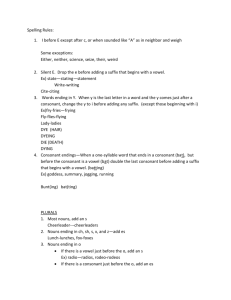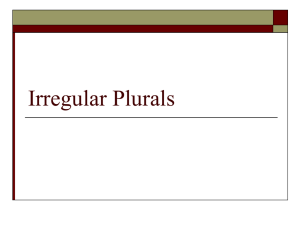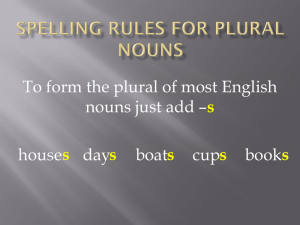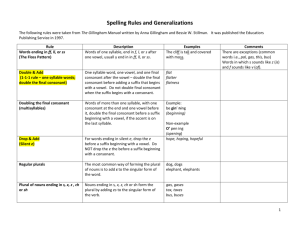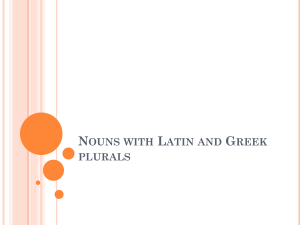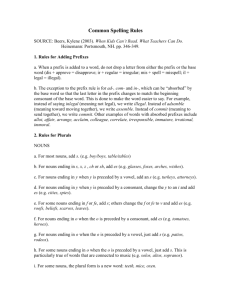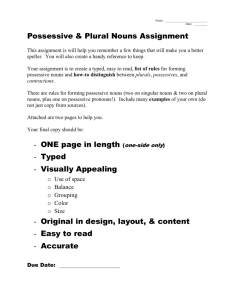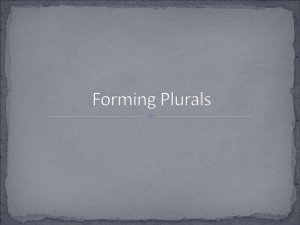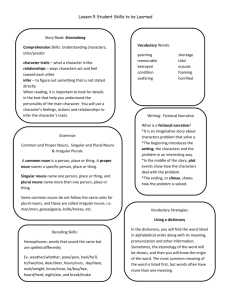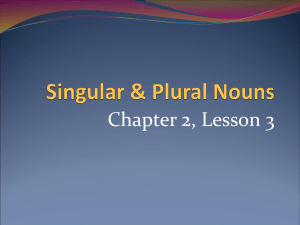File - Crespi Freshman English
advertisement
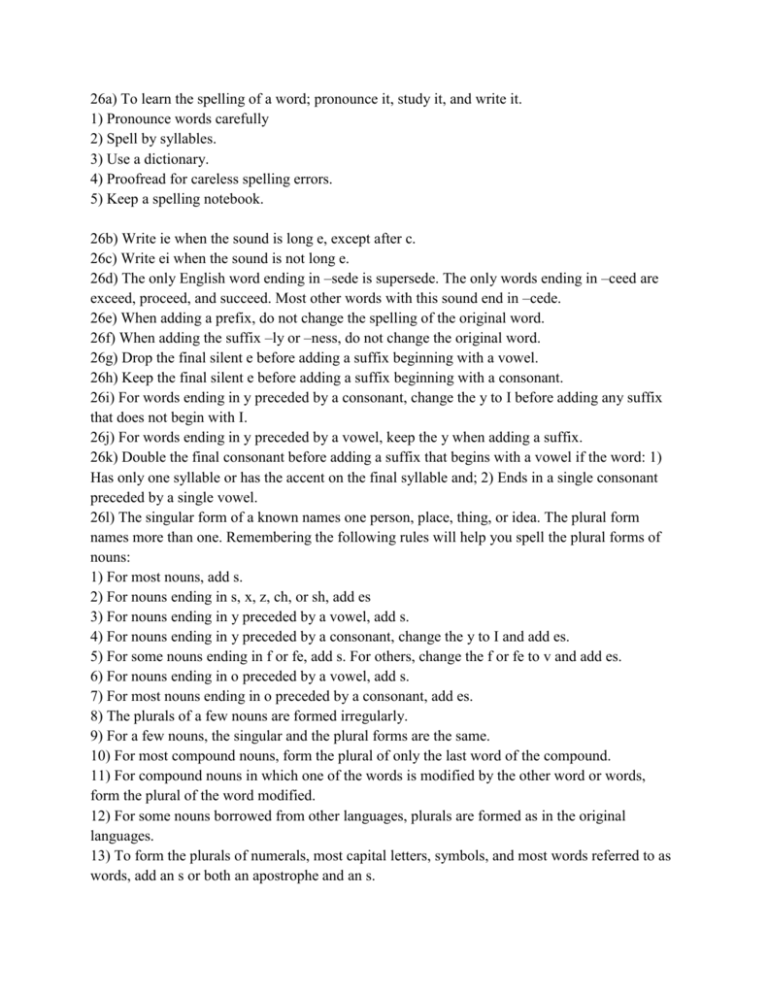
26a) To learn the spelling of a word; pronounce it, study it, and write it. 1) Pronounce words carefully 2) Spell by syllables. 3) Use a dictionary. 4) Proofread for careless spelling errors. 5) Keep a spelling notebook. 26b) Write ie when the sound is long e, except after c. 26c) Write ei when the sound is not long e. 26d) The only English word ending in –sede is supersede. The only words ending in –ceed are exceed, proceed, and succeed. Most other words with this sound end in –cede. 26e) When adding a prefix, do not change the spelling of the original word. 26f) When adding the suffix –ly or –ness, do not change the original word. 26g) Drop the final silent e before adding a suffix beginning with a vowel. 26h) Keep the final silent e before adding a suffix beginning with a consonant. 26i) For words ending in y preceded by a consonant, change the y to I before adding any suffix that does not begin with I. 26j) For words ending in y preceded by a vowel, keep the y when adding a suffix. 26k) Double the final consonant before adding a suffix that begins with a vowel if the word: 1) Has only one syllable or has the accent on the final syllable and; 2) Ends in a single consonant preceded by a single vowel. 26l) The singular form of a known names one person, place, thing, or idea. The plural form names more than one. Remembering the following rules will help you spell the plural forms of nouns: 1) For most nouns, add s. 2) For nouns ending in s, x, z, ch, or sh, add es 3) For nouns ending in y preceded by a vowel, add s. 4) For nouns ending in y preceded by a consonant, change the y to I and add es. 5) For some nouns ending in f or fe, add s. For others, change the f or fe to v and add es. 6) For nouns ending in o preceded by a vowel, add s. 7) For most nouns ending in o preceded by a consonant, add es. 8) The plurals of a few nouns are formed irregularly. 9) For a few nouns, the singular and the plural forms are the same. 10) For most compound nouns, form the plural of only the last word of the compound. 11) For compound nouns in which one of the words is modified by the other word or words, form the plural of the word modified. 12) For some nouns borrowed from other languages, plurals are formed as in the original languages. 13) To form the plurals of numerals, most capital letters, symbols, and most words referred to as words, add an s or both an apostrophe and an s. 26m) Spell out a number that begins a sentence. 26n) Spell out a Cardinal Number; a number that states how many; that can be expressed in one or two words. Otherwise, use numerals. 26o) Spell out an Ordinal Number; a number that expresses order. 26p) Use numerals to express numbers in conventional situations.
